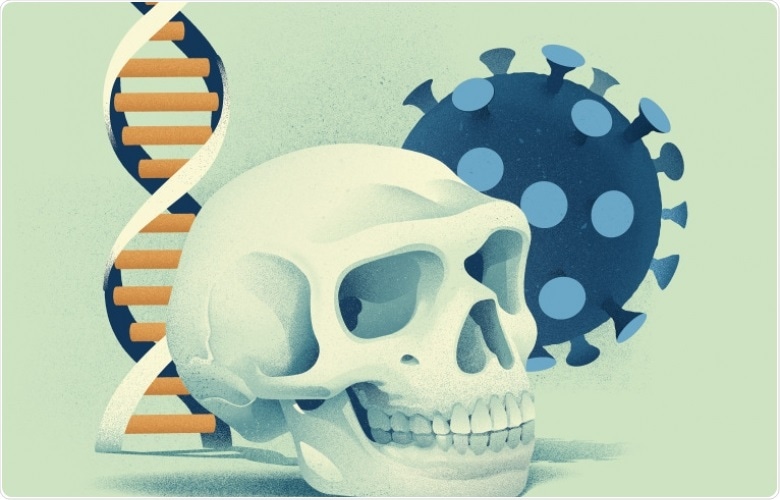In 2020, a research team from Karolinska Institute in Sweden and the Max Planck Institute for Evolutionary Anthropology in Leipzig, Germany, demonstrated that a significant genetic risk factor for severe COVID-19 infection was inherited from Neanderthals.

Image Credit: Björn Öberg.
In a study published in the PNAS journal, the same researchers have now demonstrated that a protective variant was also contributed by Neanderthals. A Neanderthal gene variant, carried by 50% of all people outside Africa, decreases the risk of requiring intensive COVID-19 care by as much as 20%.
A few individuals become severely ill when they are infected with SARS-CoV-2, whereas others get just mild symptoms or none at all. Apart from risk factors, like diabetes and advanced age, gene variants also make individuals more or less susceptible to developing severe COVID-19 infection.
On chromosome 3, a significant genetic risk factor is located that significantly raises the risk of respiratory failure and even death. In 2020, Hugo Zeberg and Svante Pääbo from the Karolinska Institute and the Max Planck Institute for Evolutionary Anthropology found that this gene variant was inherited from Neanderthals.
An enzyme that breaks down viral genomes
Now, Zeberg and Pääbo demonstrated that the Neanderthals have also passed a protective variant to today’s people. They found that an area on chromosome 12, which decreases the risk of requiring intensive care following infection with the COVID-19 virus by 20%, is also inherited from Neanderthals.
The genes in this chromosomal region are known as OAS and they control the function of an enzyme that breaks down viral genomes, and the Neanderthal gene variant of the enzyme appears to do this more effectively.
This shows that our heritage from Neanderthals is a double-edged sword when it comes to our response to SARS-CoV-2. They have given us variants that we can both curse and thank them for.”
Hugo Zeberg, Researcher, Department of Neuroscience, Karolinska Institutet
Zeberg also works at the Max Planck Institute for Evolutionary Anthropology.
Has increased in frequency
The analysis also demonstrated that since the last Ice Age, the protective variant of Neanderthals has dramatically increased so that is it presently carried by almost 50% of all individuals outside Africa.
It is striking that this Neanderthal gene variant has become so common in many parts of the world. This suggests that it has been favorable in the past. It is also striking that two genetic variants inherited from Neanderthals influence COVID-19 outcomes in opposite directions. Their immune system obviously influences us in both positive and negative ways today.”
Svante Pääbo, Director, Max Planck Institute for Evolutionary Anthropology
Source:
Journal reference:
Zeberg, H & Pääbo, S (2021) A genomic region associated with protection against severe COVID-19 is inherited from Neanderthals. PNAS. doi.org/10.1073/pnas.2026309118.